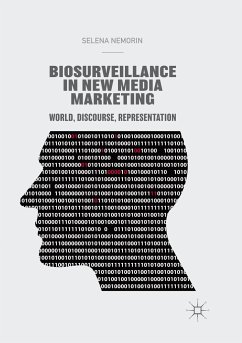Advertising has long been considered a manipulator of minds and has increased significantly in coercive power since the emergence of research in behavioural psychology. Now with the deployment of neuro-physiological imaging technologies into market contexts, companies are turning to neuromarketing to measure how we think and feel. Data driven models are being used to inform advertising strategies designed to trigger human action at a level beneath conscious awareness. This practice can be understood as a form of consumer biosurveillance: but what is behind the hype? What are the consequences?
Biosurveillance in New Media Marketing is a critical reflection on the role that technology is playing in the construction of consumer representations, and its encroachment into the internal lives of individuals and groups. It is a work that examines the relationship between neuromarketing practitioners and machines, and how the discourses and practices emerging from this entanglement are influencing the way we make sense of the world.
Biosurveillance in New Media Marketing is a critical reflection on the role that technology is playing in the construction of consumer representations, and its encroachment into the internal lives of individuals and groups. It is a work that examines the relationship between neuromarketing practitioners and machines, and how the discourses and practices emerging from this entanglement are influencing the way we make sense of the world.








